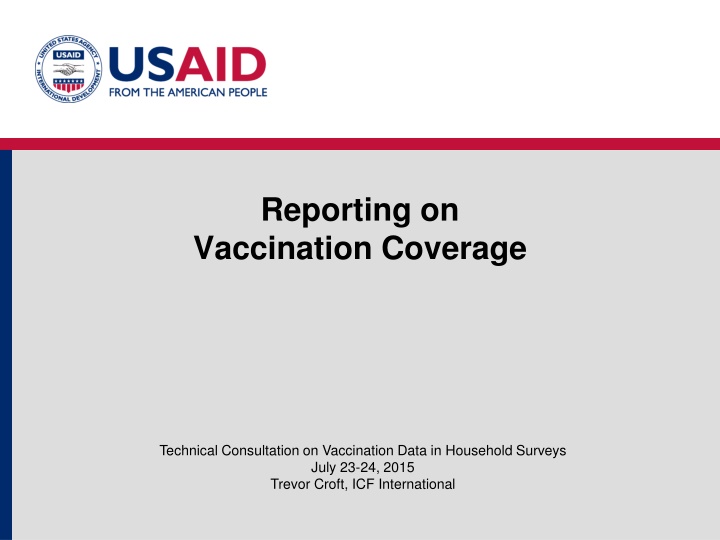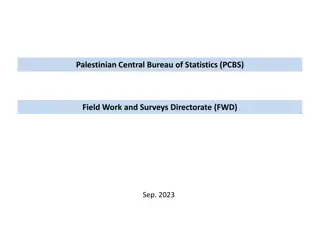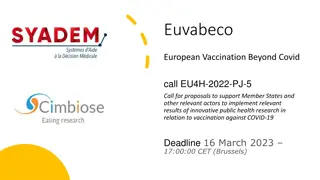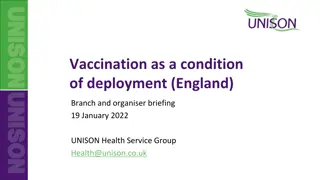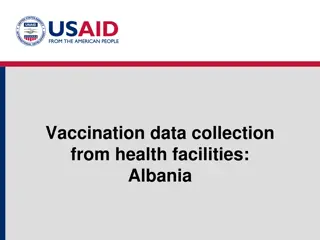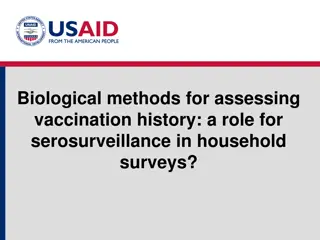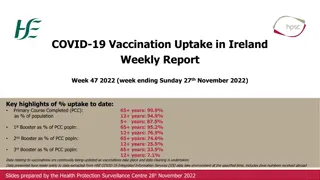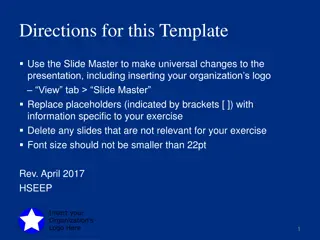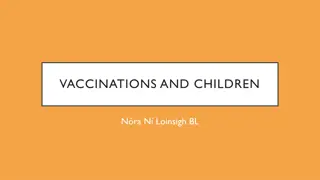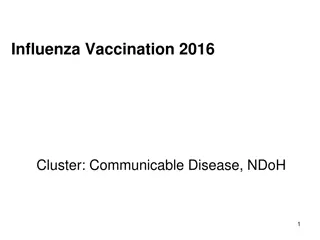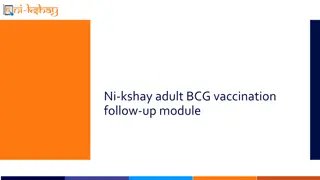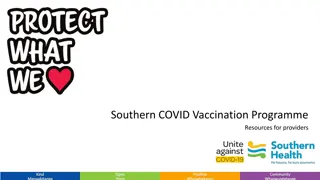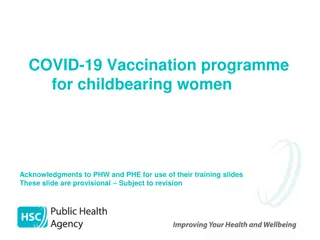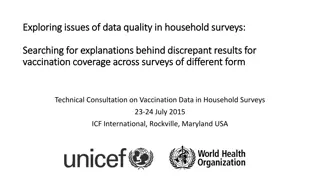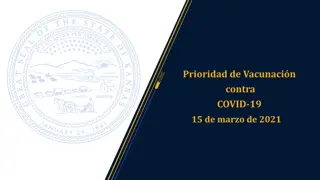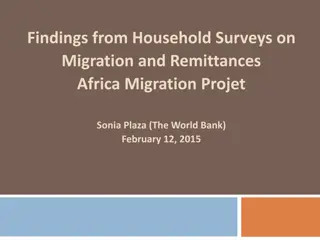Technical Consultation on Vaccination Data in Household Surveys
This report discusses vaccination coverage data from household surveys in various countries such as Malawi, Bangladesh, and Armenia. It includes calculations on children receiving vaccines, issues related to vaccine combinations and age cohorts, and recommendations for presenting vaccination data accurately. The report also highlights the importance of capturing timely and valid doses, evidence of home-based records, and different vaccine schedules. Suggestions are made for improving data collection and reporting methods to ensure accurate and comprehensive vaccination coverage assessment.
Download Presentation

Please find below an Image/Link to download the presentation.
The content on the website is provided AS IS for your information and personal use only. It may not be sold, licensed, or shared on other websites without obtaining consent from the author.If you encounter any issues during the download, it is possible that the publisher has removed the file from their server.
You are allowed to download the files provided on this website for personal or commercial use, subject to the condition that they are used lawfully. All files are the property of their respective owners.
The content on the website is provided AS IS for your information and personal use only. It may not be sold, licensed, or shared on other websites without obtaining consent from the author.
E N D
Presentation Transcript
Reporting on Vaccination Coverage Technical Consultation on Vaccination Data in Household Surveys July 23-24, 2015 Trevor Croft, ICF International
Calculations Line 1: Percentage of ALL children 12-23 receiving vaccine according to card. Line 2: Percentage of ALL children 12-23 receiving vaccine according to mother s recall. Line 3: Percentage of ALL children 12-23 receiving vaccine according to either source. Line 3 = Line 1 + Line 2. Note that denominator for all 3 lines is from the third line. Line 4: Percentage of ALL children 12-23 receiving vaccine before age 12 months. Only available for those with vaccine cards Estimated for mother s report, based on data for those with cards
Issues Different vaccine combinations Age cohorts and target groups Full vaccination & basic vaccination Evidence of home based record (HBR) Timely doses and valid doses HPV
Vaccine combinations Differing vaccine schedules may apply in the three years preceding the survey Pentavalent v. DPT, HepB, Hib separately. Need to capture both those recorded as Pentavalent and those recorded as separate vaccines Proposal: Present data on antigens separately if collected separately If only given as Pentavalent, present as DPT-HepB-Hib combined
Age cohorts and age appropriate vaccination Standard cohort: children 12-23 months of age For MCV given at 12-15 months, DHS & MICS have used 15-26 or 18-29 Other vaccines also have older target groups MCV2 at 18-21 months Rubella at 12 months WHO/UNICEF recommendation Use single year cohorts, e.g. 12-23, 24-35, 36-47 months Present data for those cohorts for appropriate vaccines
Fully vaccinated & basic vaccination Fully vaccinated All vaccines given according to schedule as appropriate for age Should some vaccines be excluded? (e.g. Polio 0) Should newer vaccines be excluded for a period of time until fully established? Otherwise trends may decline when new vaccines are introduced Cases when vaccines should not be given? Basic vaccination BCG, Polio 1-3, DPT 1-3, Measles only Argued that this is useful for monitoring trends Excludes newer vaccines, including Polio 0 (at birth) Is this concept useful?
Evidence of home based record Include evidence of home based record in tabulations: Ever had vaccination card Currently has vaccination card Vaccination card seen by interviewer Do we need all 3?
Timely doses Given by 12 months of age Calculated by applying the proportion of vaccines given before age 12 months of those with sufficient date information*, to the total proportion of children receiving a vaccine: ?????????? ?????? ?? ? ?????? ???????????? ??? ?????????? ???? ???? ?????????? ?? 12 ???? ? DHS 1-6: calculated to the month DHS 7: now possible to the day. Apply to appropriate age for vaccine e.g. 24 months for MCV2 Relies on good date of birth and vaccination dates
Valid doses Given with appropriate spacing e.g. 4 weeks between Polio 1 & 2. Hep.B at birth within < 24 hours? Relies on good date information for each vaccine Data quality can be a big issue Not currently presented in DHS tabulations Probably more appropriate for secondary analysis
HPV If we are to include HPV, what is needed for reporting? Women receiving HPV 1, 2, 3? Received by age 15? 13? Similar reporting to, say, DPT?
